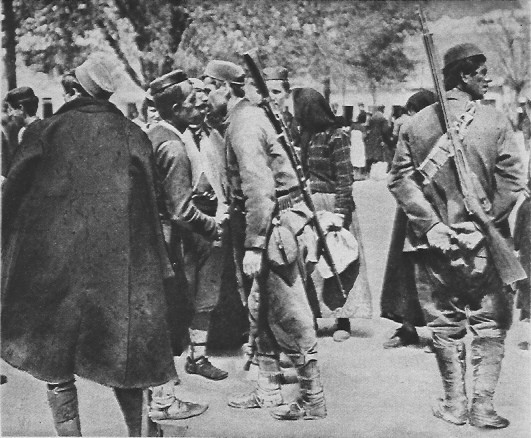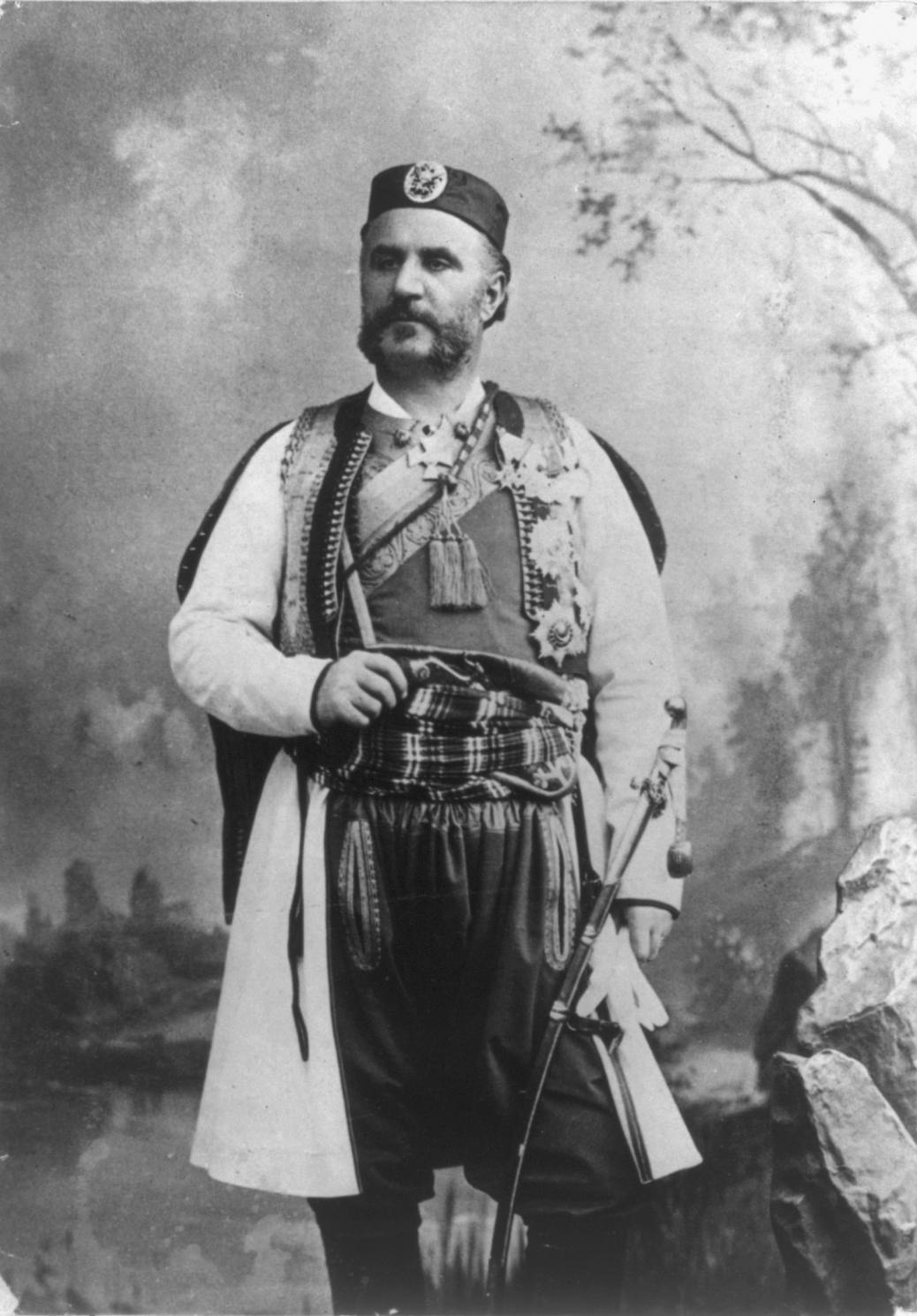|
List Of Heads Of State Of Montenegro
This article lists the Head of state, heads of state of Montenegro, from the establishment of the Prince-Bishopric of Montenegro to the present day. The list includes the heads of state of the independent monarchies; Prince-Bishopric of Montenegro, Principality of Montenegro and Kingdom of Montenegro, as well as Socialist Republic of Montenegro, a Federated state, constituent country of the Socialist Federal Republic of Yugoslavia and heads of state of the Republic of Montenegro (1992–2006), a constituent country of the Serbia and Montenegro, Federal Republic of Yugoslavia / State Union of Serbia and Montenegro. Between 1943 and 1974, Montenegro's head of state was the Speaker (politics), speaker of the Montenegrin parliament. Monarchy Prince-Bishopric of Montenegro (1696–1852) Principality of Montenegro (1852–1910) Kingdom of Montenegro (1910–1918) Republic Socialist Republic of Montenegro (1943–1992) ''SR Montenegro'' within Democratic Federal Yugoslavia an ... [...More Info...] [...Related Items...] OR: [Wikipedia] [Google] [Baidu] |
Head Of State
A head of state (or chief of state) is the public persona who officially embodies a state Foakes, pp. 110–11 " he head of statebeing an embodiment of the State itself or representatitve of its international persona." in its unity and legitimacy. Depending on the country's form of government and separation of powers, the head of state may be a ceremonial figurehead or concurrently the head of government and more (such as the president of the United States, who is also commander-in-chief of the United States Armed Forces). In a parliamentary system, such as the United Kingdom or India, the head of state usually has mostly ceremonial powers, with a separate head of government. However, in some parliamentary systems, like South Africa, there is an executive president that is both head of state and head of government. Likewise, in some parliamentary systems the head of state is not the head of government, but still has significant powers, for example Morocco. In contrast, ... [...More Info...] [...Related Items...] OR: [Wikipedia] [Google] [Baidu] |
Vasilije Petrović
Vasilije Petrović ( sr-cyrl, Василије Петровић; 1709 – 10 March 1766) was the metropolitan bishop of Cetinje (Prince-Bishop of Montenegro), ruling with Sava Petrović, his cousin. He was author of the ''History of Montenegro'', published in 1754. Political background The modern political history of Montenegro began with Metropolitan Danilo, who founded a state ruled by a dynasty from the Petrović-Njegoš family. Danilo was eventually succeeded by his two nephews, first by Sava Petrović, and then by Vasilije. Bishop Sava was an uninfluential and secluded person, and dedicated himself more to religion than to politics. Vasilije, however, maintained good relations with the Republic of Venice and attempted to avoid military conflicts with neighbouring states. Term During that time Vasilije ruled together with Sava, his brother, as his coadjutor. Vasilije between 1750 and 1766 even tried to convince Austria's Maria Theresa that "since the time of Alexander th ... [...More Info...] [...Related Items...] OR: [Wikipedia] [Google] [Baidu] |
World War I
World War I (28 July 1914 11 November 1918), often abbreviated as WWI, was one of the deadliest global conflicts in history. Belligerents included much of Europe, the Russian Empire, the United States, and the Ottoman Empire, with fighting occurring throughout Europe, the Middle East, Africa, the Pacific, and parts of Asia. An estimated 9 million soldiers were killed in combat, plus another 23 million wounded, while 5 million civilians died as a result of military action, hunger, and disease. Millions more died in genocides within the Ottoman Empire and in the 1918 influenza pandemic, which was exacerbated by the movement of combatants during the war. Prior to 1914, the European great powers were divided between the Triple Entente (comprising France, Russia, and Britain) and the Triple Alliance (containing Germany, Austria-Hungary, and Italy). Tensions in the Balkans came to a head on 28 June 1914, following the assassination of Archduke Franz Ferdin ... [...More Info...] [...Related Items...] OR: [Wikipedia] [Google] [Baidu] |
Central Powers
The Central Powers, also known as the Central Empires,german: Mittelmächte; hu, Központi hatalmak; tr, İttifak Devletleri / ; bg, Централни сили, translit=Tsentralni sili was one of the two main coalitions that fought in World War I (1914–1918). It consisted of the German Empire, Austria-Hungary, the Ottoman Empire, and the Kingdom of Bulgaria and was also known as the Quadruple Alliance.german: Vierbund, tr, Dörtlü İttifak, hu, Központi hatalmak, bg, Четворен съюз, translit=Chetvoren sūyuz Colonies of these countries also fought on the Central Powers' side such as German New Guinea and German East Africa, until almost all of their colonies were occupied by the Allies. The Central Powers faced and were defeated by the Allied Powers that had formed around the Triple Entente. The Central Powers' origin was the alliance of Germany and Austria-Hungary in 1879. Despite having nominally joined the Triple Alliance before, Italy d ... [...More Info...] [...Related Items...] OR: [Wikipedia] [Google] [Baidu] |
Montenegrin Campaign
The Montenegrin campaign of World War I, in January 1916, was a part of the Serbian campaign of World War I, in which Austria-Hungary defeated and occupied the Kingdom of Montenegro, an ally of Serbia. By January 1916, the Serbian Army had been defeated by an Austrian-Hungarian, German and Bulgarian invasion. The remnants of the Serbian army had withdrawn through Montenegro and Albania, and were being evacuated by allied ships from 12 December first to Italy and later to Corfu. The Austro-Hungarian High Command, then at Teschen, decided to use the success in Serbia to knock Montenegro out of the war. The army of Montenegro that had fought alongside their Serbian allies, had now withdrawn into their own territory, but were still resisting against the Central Powers. Furthermore, the Austrian Commander-in-Chief Conrad von Hötzendorf wanted to take the Italian-held Albanian ports of Durazzo and Valona. Two Austrian army corps for this task were formed in December 1915. One in ... [...More Info...] [...Related Items...] OR: [Wikipedia] [Google] [Baidu] |
Nicholas I Of Montenegro
Nikola I Petrović-Njegoš ( sr-cyr, Никола I Петровић-Његош; – 1 March 1921) was the last monarch of Montenegro from 1860 to 1918, reigning as prince from 1860 to 1910 and as the country's first and only king from 1910 to 1918. Biography Early life Nikola was born in the village of Njeguši, the home of the reigning House of Petrović. He was the son of Mirko Petrović-Njegoš, a celebrated Montenegrin warrior (an elder brother to Danilo I of Montenegro) and his wife, Anastasija Martinovich (1824–1895). After 1696, when the dignity of vladika, or prince-bishop, became hereditary in the Petrović family, the sovereign power had descended from uncle to nephew, the vladikas belonging to the order of the black clergy (i.e., monastic clergy) who are forbidden to marry. A change was introduced by Danilo I, who declined the episcopal office, married and declared the principality hereditary in the direct male line. Mirko Petrović-Njegoš having renounced his cla ... [...More Info...] [...Related Items...] OR: [Wikipedia] [Google] [Baidu] |
Nicholas I Of Montenegro, 1909
Nicholas is a male given name and a surname. The Eastern Orthodox Church, the Roman Catholic Church, and the Anglican Churches celebrate Saint Nicholas every year on December 6, which is the name day for "Nicholas". In Greece, the name and its derivatives are especially popular in maritime regions, as St. Nicholas is considered the protector saint of seafarers. Origins The name is derived from the Greek name Νικόλαος ('' Nikolaos''), understood to mean 'victory of the people', being a compound of νίκη ''nikē'' 'victory' and λαός ''laos'' 'people'.. An ancient paretymology of the latter is that originates from λᾶς ''las'' ( contracted form of λᾶας ''laas'') meaning 'stone' or 'rock', as in Greek mythology, Deucalion and Pyrrha recreated the people after they had vanished in a catastrophic deluge, by throwing stones behind their shoulders while they kept marching on. The name became popular through Saint Nicholas, Bishop of Myra in Lycia, the inspi ... [...More Info...] [...Related Items...] OR: [Wikipedia] [Google] [Baidu] |
Knjaz Danilo
Danilo I Petrović-Njegoš ( sr-cyr, Данило I Петровић-Његош; 25 May 1826 – 13 August 1860) was the ruling Prince of Montenegro from 1851 to 1860. The beginning of his reign marked the transition of Montenegro from an archaic form of government ( Prince-Bishopric) into a secular Principality. He became involved in a war with the Ottoman Empire in 1852, the Porte claiming jurisdiction in Montenegro, and the boundaries between the two countries were not defined until 1858. Danilo, with the help of his elder brother, Voivode Mirko, defeated the Ottomans at Ostrog in 1853 and in the Battle of Grahovac in 1858. The town of Danilovgrad is named after him. Rise to power as Prince When Petar II Petrović-Njegoš died, the Senate, under the influence of Đorđije Petrović (the wealthiest Montenegrin at the time), proclaimed Petar's elder brother Pero Tomov as Prince (not bishop, or ''Vladika''). Nevertheless, in a brief struggle for power, Pero, who commanded th ... [...More Info...] [...Related Items...] OR: [Wikipedia] [Google] [Baidu] |
Danilo I, Prince Of Montenegro
Danilo I Petrović-Njegoš ( sr-cyr, Данило I Петровић-Његош; 25 May 1826 – 13 August 1860) was the ruling Prince of Montenegro from 1851 to 1860. The beginning of his reign marked the transition of Montenegro from an archaic form of government ( Prince-Bishopric) into a secular Principality. He became involved in a war with the Ottoman Empire in 1852, the Porte claiming jurisdiction in Montenegro, and the boundaries between the two countries were not defined until 1858. Danilo, with the help of his elder brother, Voivode Mirko, defeated the Ottomans at Ostrog in 1853 and in the Battle of Grahovac in 1858. The town of Danilovgrad is named after him. Rise to power as Prince When Petar II Petrović-Njegoš died, the Senate, under the influence of Đorđije Petrović (the wealthiest Montenegrin at the time), proclaimed Petar's elder brother Pero Tomov as Prince (not bishop, or ''Vladika''). Nevertheless, in a brief struggle for power, Pero, who commanded th ... [...More Info...] [...Related Items...] OR: [Wikipedia] [Google] [Baidu] |
Danilo Petrović Njegoš
Danilo is a given name found in Italian, Portuguese, Spanish and Serbian. Notable people with the name Danilo include: Athletes Footballers * Danilo (footballer, born 1979), Brazilian footballer Danilo de Andrade * Danilo (footballer, born 1980), Brazilian footballer Danilo Moreira Serrano * Danilo (footballer, born 1981), Brazilian footballer Danilo Aguiar Rocha * Danilo (footballer, born 1984), Brazilian footballer Danilo Larangeira * Danilo (footballer, born 1986), Brazilian footballer Danilo Vitalino Pereira * Danilo (footballer, born April 1991), Brazilian footballer Danilo Lopes Cezario * Danilo (footballer, born July 1991), Brazilian footballer Danilo Luiz da Silva * Danilo (footballer, born 1999), Brazilian footballer Danilo Pereira da Silva * Danilo (footballer, born 2001), Brazilian footballer Danilo dos Santos de Oliveira * Danilo Aceval (born 1975), Paraguayan footballer * Danilo Acosta (born 1997), Ecuadorian footballer * Danilo Alves (footballer, born 1996) ... [...More Info...] [...Related Items...] OR: [Wikipedia] [Google] [Baidu] |
Petar II Petrović-Njegoš
Petar II Petrović-Njegoš ( sr-cyrl, Петар II Петровић-Његош, ; – ), commonly referred to simply as Njegoš (), was a Prince-Bishop (''vladika'') of Montenegro, poet and philosopher whose works are widely considered some of the most important in Montenegrin and Serbian literature. Njegoš was born in the village of Njeguši, near Montenegro's then-capital Cetinje. He was educated at several Serbian monasteries and became the country's spiritual and political leader following the death of his uncle Petar I. After eliminating all initial domestic opposition to his rule, he concentrated on uniting Montenegro's tribes and establishing a centralized state. He introduced regular taxation, formed a personal guard and implemented a series of new laws to replace those composed by his predecessor many years earlier. His taxation policies proved extremely unpopular with the tribes of Montenegro and were the cause of several revolts during his lifetime. Njegoš' ... [...More Info...] [...Related Items...] OR: [Wikipedia] [Google] [Baidu] |






